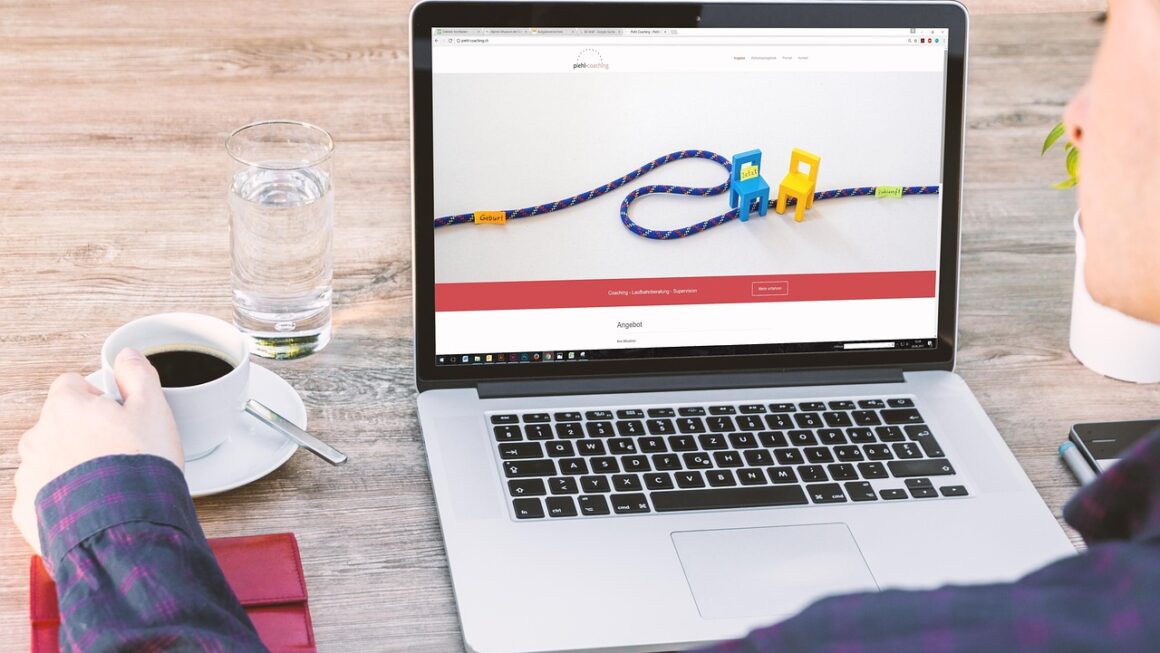Crafting a compelling personal brand isn’t just about creating a fancy logo or a catchy tagline; it’s about defining and communicating who you are, what you stand for, and the unique value you bring to the table. In today’s competitive landscape, a strong personal brand can be the key differentiator that sets you apart, opens doors to new opportunities, and ultimately, helps you achieve your professional goals. Whether you’re an entrepreneur, a seasoned executive, or just starting your career, investing in your personal brand is an investment in your future.
What is Personal Branding?
Defining Your Personal Brand
Personal branding is the process of consciously shaping your public image and reputation to align with your values, skills, and aspirations. It’s about strategically positioning yourself as an authority in your field and building a recognizable and trustworthy persona. Think of it as the art of telling your story in a way that resonates with your target audience and establishes you as a leader.
- It’s about more than just self-promotion; it’s about authenticity and genuine connection.
- It involves identifying your unique selling proposition (USP) and highlighting what makes you different.
- It’s a continuous process of self-reflection, adaptation, and strategic communication.
Why is Personal Branding Important?
A well-defined personal brand offers numerous benefits in today’s world.
- Increased Visibility: A strong brand helps you stand out from the crowd and get noticed.
- Enhanced Credibility: Consistent communication and authentic messaging build trust and authority.
- Career Advancement: A compelling brand can open doors to new opportunities, promotions, and collaborations.
- Business Growth: For entrepreneurs, a strong personal brand can attract clients, investors, and partners.
- Influence and Impact: A well-defined brand allows you to shape conversations and influence others in your field.
- Example: Take Elon Musk, for instance. His personal brand is closely tied to innovation, disruption, and pushing the boundaries of technology. This association attracts investors, customers, and talent to his ventures like Tesla and SpaceX.
Building Your Personal Brand: A Step-by-Step Guide
Step 1: Self-Assessment and Discovery
Before you can build your brand, you need to understand yourself. This involves:
- Identifying Your Values: What principles guide your decisions and actions? Are you driven by integrity, innovation, or creativity?
- Defining Your Skills and Strengths: What are you good at? What do others compliment you on? Focus on your core competencies.
- Identifying Your Target Audience: Who are you trying to reach? What are their needs and pain points?
- Understanding Your Passions: What are you truly passionate about? Aligning your brand with your passions will make it more authentic and sustainable.
- Example: Ask yourself, “What problems do I enjoy solving? What topics do I naturally gravitate towards?”
Step 2: Defining Your Brand Message
Once you understand yourself and your audience, you need to craft your brand message. This involves:
- Creating a Value Proposition: Clearly articulate the unique value you offer to your target audience. How do you solve their problems?
- Developing Your Elevator Pitch: Craft a concise and compelling summary of who you are, what you do, and why people should care.
- Choosing Your Brand Voice: Determine the tone and style you’ll use in your communications (e.g., professional, approachable, humorous).
- Crafting a Brand Story: Share your journey, your challenges, and your successes in a way that resonates with your audience.
- Example: Instead of saying “I’m a marketing consultant,” try “I help businesses dramatically increase their online leads through targeted content and SEO strategies.”
Step 3: Establishing Your Online Presence
In today’s digital age, your online presence is crucial to your personal brand.
- Choosing the Right Platforms: Focus on the platforms where your target audience spends their time (e.g., LinkedIn for professionals, Instagram for visual content).
- Optimizing Your Profiles: Ensure your profiles are complete, consistent, and visually appealing. Use a professional headshot and a compelling bio.
- Creating and Sharing Valuable Content: Share articles, blog posts, videos, and social media updates that showcase your expertise and provide value to your audience.
- Engaging with Your Audience: Respond to comments, answer questions, and participate in relevant conversations.
- Example: If you’re a software developer, consider showcasing your projects on GitHub and contributing to open-source projects. Regularly post updates about your work on LinkedIn or a personal blog.
Maintaining and Evolving Your Personal Brand
Consistency is Key
- Ensure your brand message is consistent across all platforms.
- Regularly update your profiles and content to stay relevant.
- Maintain a professional and respectful demeanor in all your interactions.
Monitoring and Adapting
- Track your online reputation and address any negative feedback promptly.
- Stay up-to-date with industry trends and adapt your brand message accordingly.
- Solicit feedback from trusted colleagues and mentors to identify areas for improvement.
Networking and Building Relationships
- Attend industry events and conferences to connect with other professionals.
- Join relevant online communities and participate in discussions.
- Build genuine relationships with people in your field.
- Example:* Consider using tools like Google Alerts to monitor mentions of your name or brand online. This allows you to proactively address any issues and stay informed about what people are saying about you.
Common Mistakes to Avoid
Inauthenticity
- Trying to be someone you’re not will ultimately backfire. Be genuine and authentic in your communications.
Neglecting Your Online Presence
- Ignoring your online reputation can damage your brand. Actively manage your profiles and address any negative feedback.
Inconsistency
- A lack of consistency in your messaging and branding can confuse your audience and erode trust.
Failing to Provide Value
- Focusing solely on self-promotion without providing value to your audience will turn them off.
Ignoring Feedback
- Being closed off to feedback can hinder your growth and prevent you from improving your brand.
Conclusion
Building a strong personal brand is an ongoing process that requires dedication, self-awareness, and strategic communication. By understanding your values, defining your message, and actively managing your online presence, you can create a powerful brand that opens doors to new opportunities and helps you achieve your professional goals. Remember to stay authentic, consistent, and focused on providing value to your audience, and your personal brand will serve as a valuable asset throughout your career.




